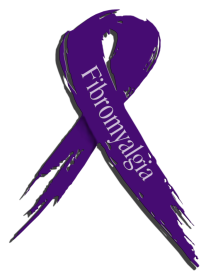September Blog
September Blog
FIBROMYALGIA
What is Fibromyalgia?
Fibromyalgia is one of the most common chronic pain conditions. It affects over 5 million women and men in the United States. Fibromyalgia pain is different than pain experienced from a headache or sprained ankle, but it is very real!
Fibromyalgia affects muscles and soft tissue. You feel it in your muscles, tendons, and ligaments around the joints. It can feel similar to osteoarthritis, bursitis, and tendinitis, but the pain is over the entire body. Fibromyalgia pain is a specific kind of pain!
- CHRONIC - The pain can last up to 3 months or longer. Many suffer pain for years before being diagnosed.
- WIDESPREAD - The pain is described as being in both the upper and lower parts of the body. Many feel pain in specific areas of the body, such as shoulders or neck.
- TENDERNESS - A small amount of pressure may cause a deep, sharp, dull, throbbing, or aching pain.
Common Symptoms
- Fatigue - A lingering tiredness and feeling drained. Simple things such as grocery shopping or cooking dinner can be quite the endeavor. You might even be too tired for sex.
- Sleep Problems - You fall asleep, but sleep is light and easily disturbed. When you get up in the morning, you're exhausted. Research tests in sleep labs show that people with fibro are constantly interrupted by bursts of brain activity, similar to activity in the brain when awake. The interruptions limit deep sleep time, when the body rejuvenates itself.
- Mood Disorders - Most who suffer fibromyalgia also experience depression or an anxiety disorder when diagnosed. Dealing with constant fatigue and pain can be stressful. You may become less active and more withdrawn, which can lead to depression.
- Morning Stiffness - Most suffering with fibromyalgia feel the need to "loosen up" after getting out of bed to start the day - like stiffness from rheumatoid arthritis.
- Paresthesia - The sensation of numbness, tingling and burning or paresthesia, occurs randomly, lasting a few minutes or constant.
- Hyperalgesia - The second type of sensitivity - the feeling of extreme pain when moderate pain would occur.
- Headaches - 2 of 5 people with fibro get migraine or tension headaches regularly. The headaches can be caused by tight neck muscles or tender points at the back of the head and neck.
- Irritable Bowel Syndrome - About two-thirds of people with fibromyalgia experience belly pain, gas and bloating. They may also have constipation and diarrhea. Many have acid reflux or gastroesophageal reflux disease (GERD).
- Menstrual Cramps - Women have unusually painful menstrual cramps, for years, along with their other symptoms.
- Restless Legs Syndrome - Usually affect the feet and legs below your knees. Pain prompts you to move your legs to make them comfortable. It is especially bothersome at night and can prevent you from sleeping.
Possible causes of Fibromyalgia
The exact cause of fibromyalgia is unknown, yet recent studies suggest changes in the central nervous system—the brain, spinal cord, and nerves—may be responsible for fibromyalgia pain. Fibromyalgia is thought to be the result of overactive nerves.
Difficulty focusing on work
Find it difficult to focus on your work or to focus on one thing at a time? Does it feel like “brain fog or more commonly known as ‘fibro fog!” Fibromyalgia can affects the short-term memory and make it difficult to focus as a result of chronic fatigue.
Other factors:
- AUTOIMMUNE DISEASES
- INFECTIONS
- FAMILY HISTORY
- TRAUMA
DIAGNOSING FIBROMYALGIA
Talk to your doctor or medical professional. Be specific about the kind of pain you’re experiencing. Fibromyalgia can be hard to diagnose and can mimic other conditions. There is no specific test or medical scan for fibromyalgia.
Home & Natural Remedies
While the studies are limited on natural dietary supplements and fibromyalgia, some patients have found relief with over-the-counter natural dietary supplements. There is no one "pill" approach for the treatment or cure for fibromyalgia! Numerous studies have shown that exercise is one of the most important treatments for fibromyalgia. Aerobic or conditioning exercise can aid in pain relief and depression. Regular exercise increases the body’s production of endorphins, natural painkillers that also boost mood.
In addition, people often wonder if medical marijuana, which can be prescribed by physicians in some states, can help their chronic pain and fatigue. Medical marijuana doesn’t cure the diseases some pain experts say it may work against pain, help people sleep better, and improve mood
Physical therapy can also help relieve fibromyalgia pain and stiffness. Your physical therapist will show you the proper way to stretch painful muscles to get optimal relief. Hydrotherapy, moist heat or ice packs, along with physical therapy may ease pain even more.
- Capsaicin - is an extract of chili peppers that is applied to the skin as a cream. In a small study, capsaicin was found to help relieve pain in those who suffer severe fibromyalgia for up to 6 weeks.
- Magnesium and malic acid supplements. Researchers are working to see if low magnesium levels increases fibromyalgia symptoms
- SAM-e (S-anenosylmethionine) - is a substance that occurs naturally in the body and studied in many clinical trials the past 20 years in patients who have joint pain and osteoarthritis. The studies found that SAM-e may be just as effective in relieving pain as nonsteroidal anti-inflammatory drugs, NSAIDs, such as ibuprofen and aspirin. A U.S. study found that SAM-e reduced pain and improved joint function as effectively as Celebrex, a type of NSAID. New research has found that SAM-e may also help reduce the symptoms of depression
- St. John’s wort - may not help with fibromyalgia pain, but some sufferers use it to ease depression that may accompany fibromyalgia.
- Vitamin D supplements - is being studied in treating other conditions, including fibromyalgia. Some studies have shown sufferer with low vitamin D levels will have less pain when using a vitamin D supplement.
- Cordyceps – are native to China and used by Tibetan healers for remedies for sleep, to boost energy, digestion, stamina and endurance. Scientists have researched the potential for alleviating damage caused by stress on the brain and body. Used in traditional Chinese medicine for cancer, cordyceps has anti-tumor properties and protects the kidneys.
Alternative Treatments
- Acupuncture - Some results show that that acupuncture may alter brain chemistry and help increase pain tolerance.
- Chiropractic - may improve pain levels, ease low back pain, and increase cervical and lumbar ranges of motion.
- Massage - Massage may stimulate circulation and release chronic muscular tension.
- Biofeedback - to measure stress-related responses in the body, biofeedback helps some people control the stress response and relieves chronic pain, according to the National Institutes of Health.
- Meditation - Studies show that meditation produces brain waves consistent with serenity and happiness, which may help to relieve anxiety.
- Tai Chi and qi gong - two Chinese practices that have been found helpful with some fibromyalgia symptoms including pain, sleep troubles, and depression.
ALWAYS CONSULT YOUR PERSONAL HEALTH CARE PROFESSIONAL
- https://www.lyrica.com/fibromyalgia/managing-fibromyalgia-pain
- https://healthsymptoms.guide/2018/02/27/10-most-common-symptoms-of-fibromyalgia/?utm_source=fibromyalgia%2B&utm_medium=fibromyalgia&utm_campaign=bing
- https://www.webmd.com/fibromyalgia/default.htm
- https://www.webmd.com/fibromyalgia/guide/living-with-fibromyalgia-tips#1-2
- https://www.webmd.com/fibromyalgia/alternative-therapies-fibromyalgia#1
- https://www.webmd.com/fibromyalgia/guide/medicines-to-treat-fibromyalgia#1





